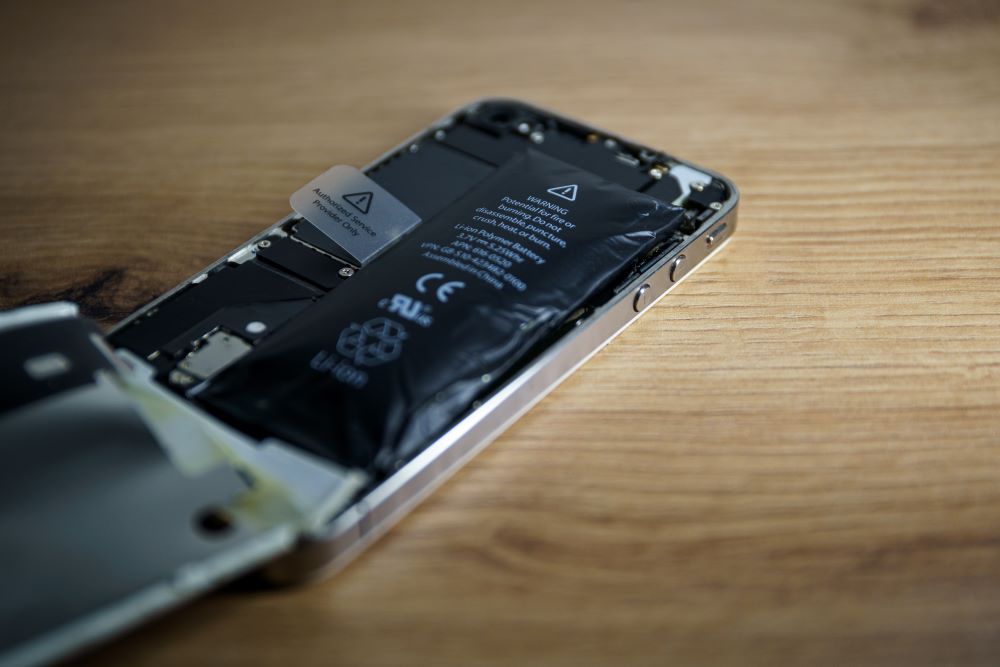A 2017 report by the U.S. Consumer Product Safety Commission (CPSC) outlined how there had been at least 25,000 cases of battery fires involving over 400 different types of electronic devices during the previous decade. It’s likely that number has only grown during the past seven years since that report was published, given how the use of lithium-ion battery-powered devices has grown in our country.
The problem with these fires, as chronicled in the above-referenced report and subsequent ones, is that they spread quickly and often prove challenging to put out, thus endangering the safety and lives of those holding onto them or who are in their vicinity. If you’ve suffered harm when using a product like this, it’s important to understand North Carolina product liability laws and what insight those give as to your right to hold manufacturers accountable for battery fires.
Grounds on Which You May File a Product Liability Case in North Carolina
In order to file a lawsuit against a battery manufacturer, you must be able to establish how they are liable for what happened. North Carolina General Statutes Chapter 99B is our state’s product liability law. It describes the grounds on which you may be able to hold someone else accountable for the harm you suffered by using a product if one of the following issues was identified:
- A design defect
- Manufacturing defects
- A failure to warn issue
Understanding What May Constitute a Manufacturing Defect
Since the focus of this article is holding manufacturers accountable for battery fires, let’s discuss different types of manufacturer defects that may unexpectedly cause injuries or kill once these products make it into consumer’s hands. A review of different studies regarding the safety of lithium-ion battery manufacturing has revealed how the following are dangers associated with this process:
- Materials contamination (also referred to as foreign inclusion)
- Electrolyte drying around the electrodes
- The improper arrangements of constituents
- Deflected electrodes
- Use of inferior quality separators
- Blurs on the tab
- Collector delaminations
- Cathode or anode impurities
The above are just some examples of concerns that can emerge during the production of lithium-ion batteries. There are far more issues that can happen during the manufacturing process that can lead to a defective product making it on the market and into a customer’s hands, potentially harming them.
Grounds on Which You May Be Able to Sue a Battery Manufacturer
North Carolina doesn’t subscribe to the strict liability doctrine like other states do. However, there are other reasons you can cite for filing suit against a battery manufacturer here in the Tarheel State, such as:
- Breach of warranty: This is often defined as a misrepresentation of a condition or fact stated to be true. Generally, the product must cause harm during the warranty period. These warranties can be express or implied.
- Negligence: Claims like these are filed on the grounds that someone within the production cycle was careless or reckless in performing their duties, such that it caused a defective product to be produced, resulting in you getting hurt.
Since many products are crafted using different manufacturers’ components, it’s possible for you to hold accountable the producer of the particular defective part exclusive of or in addition to the primary one (whose name is on product packaging).
Why Proving Manufacturer Liability for Lithium Battery Fires Is Challenging
Product liability cases, especially ones filed against manufacturers, are particularly complex to prove. Why? It comes down to it being necessary for the injured party (or their legal counsel), for starters, needing to pinpoint a certain aspect of the product that malfunctioned, causing the fire to ignite. As you might imagine, doing this takes a firm understanding of how batteries are manufactured and the concerns that often cause blazes.
Fortunately, our legal team at Paynter Law has extensive experience handling cases involving lithium-ion batteries, which means that we have the knowledge to identify what caused the fire that harmed you or a family member. This is critical to us being able to hold the manufacturer who is liable accountable for your life-altering injuries or the fatal ones a loved one suffered. Discussing your case with a member of our legal team comes with no obligation and is completely free, so call or email us to discuss your lithium battery fire incident today.

